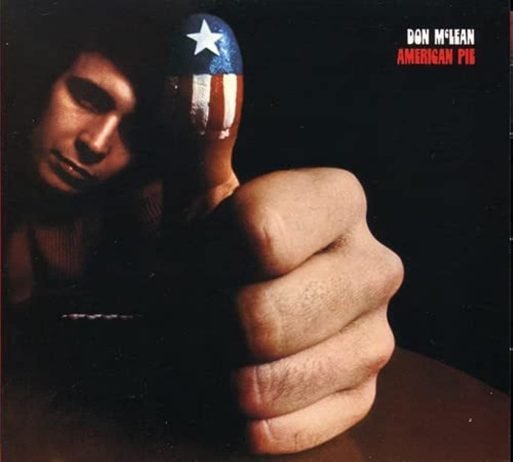 On an autumn morning in 1970, singer-songwriter Don McLean was sitting on the porch and reading a biography of Vincent van Gogh when he was suddenly struck by an idea: A song that drew on the artist’s life and work. “I knew I had to write a song arguing that he wasn’t crazy,” McLean told The Telegraph. He considered van Gogh’s mental illness different from garden-variety anguish, and so he penned a tribute that “makes you glad to be unhappy”:
On an autumn morning in 1970, singer-songwriter Don McLean was sitting on the porch and reading a biography of Vincent van Gogh when he was suddenly struck by an idea: A song that drew on the artist’s life and work. “I knew I had to write a song arguing that he wasn’t crazy,” McLean told The Telegraph. He considered van Gogh’s mental illness different from garden-variety anguish, and so he penned a tribute that “makes you glad to be unhappy”:
Starry, starry night
Paint your palette blue and grey
Look out on a summer’s day
With eyes that know the darkness in my soul
Shadows on the hills
Sketch the trees and the daffodils
Catch the breeze and the winter chills
In colors on the snowy linen land
McLean released “Vincent” on his 1971 hit album “American Pie,” and it followed the title track to become a classic. In a review of the album for AllMusic, William Ruhlmann suggested that McLean saw van Gogh’s suicide as “a sane comment on an insane world”; a sentiment recalling the oft-quoted philosopher Jiddu Krishnamurti’s observation that “it is no measure of health to be well adjusted to a profoundly sick society.” As McLean noted:
Now I understand
What you tried to say to me
And how you suffered for your sanity
And how you tried to set them free
They would not listen, they did not know how
Perhaps they’ll listen now

Singer-songwriter Don McLean
Credit: donmclean.com
“Vincent” Lyrics Provide Comfort After Suicide
While van Gogh was a prolific artist, producing more than 2,000 drawings and paintings, the Dutch post-impressionist was anything but well-adjusted. He struggled with psychosis, depression and poverty and never saw any commercial success. He regularly indulged in absinthe and famously sliced off part of his own left ear.
Yet van Gogh created beautiful, colorful pieces that today inspire millions with their vibrant strokes — including “The Starry Night,” based on the view from his window at a psychiatric hospital. A year later in 1890, at the age of 37, van Gogh died from a gunshot to the abdomen, most likely self-inflicted. He’d once written to his brother, Theo, that “we take death to go to a star.”
Many have drawn hope from McLean’s “Vincent” following a loved one’s suicide, whether that person was a family member or a celebrity. When beloved Bollywood actor Sushant Singh Rajput, who had posted van Gogh’s “The Starry Night” as his Twitter cover picture, was found hanging in his Mumbai apartment in June 2020, many took comfort in the lyrics:
And when no hope was left in sight
On that starry, starry night
You took your life, as lovers often do
But I could have told you, Vincent
This world was never meant for one
As beautiful as you
Over the years, “Vincent” has been referenced by artists of all stripes. Rapper Tupac Shakur considered the song one of his favorites, while it inspired Charles Fox and Norman Gimbel to write “Killing Me Softly,” later made into a hit single by both Roberta Flack and The Fugees. The song also provided the soundtrack for an innovative 2017 feature film, “Loving Vincent,” which explored alternate explanations for his death. Clearly, McLean’s “Vincent” will — like the artist’s work — live on.
You can listen to “Vincent,” set to a series of van Gogh’s paintings, below.

 “Vincent” by Don McLean
“Vincent” by Don McLean



 First the Wealth Gap, Now the U.S. Has a Growing Health Gap
First the Wealth Gap, Now the U.S. Has a Growing Health Gap
 How to Comfort A Dying Loved One
How to Comfort A Dying Loved One














